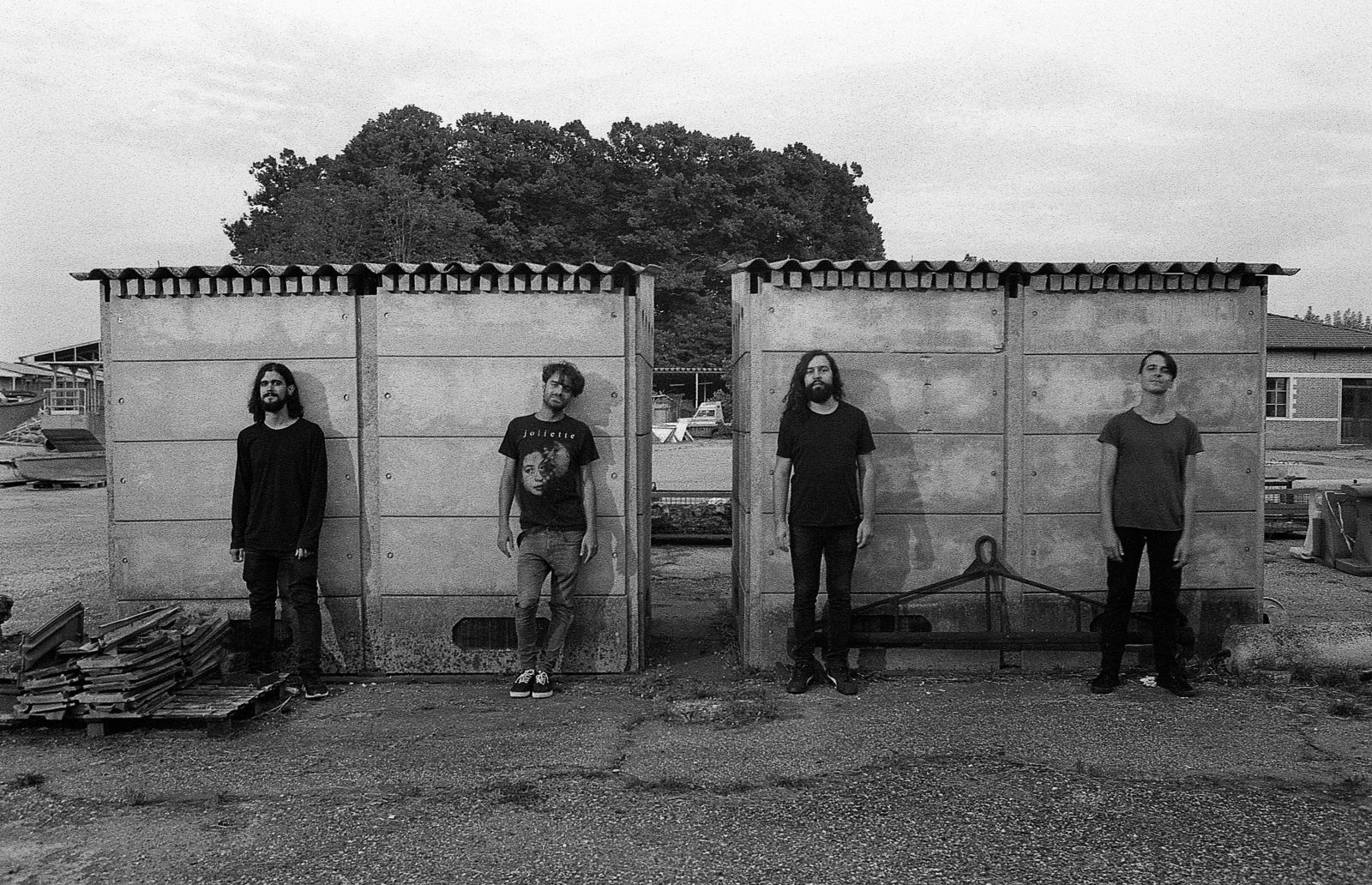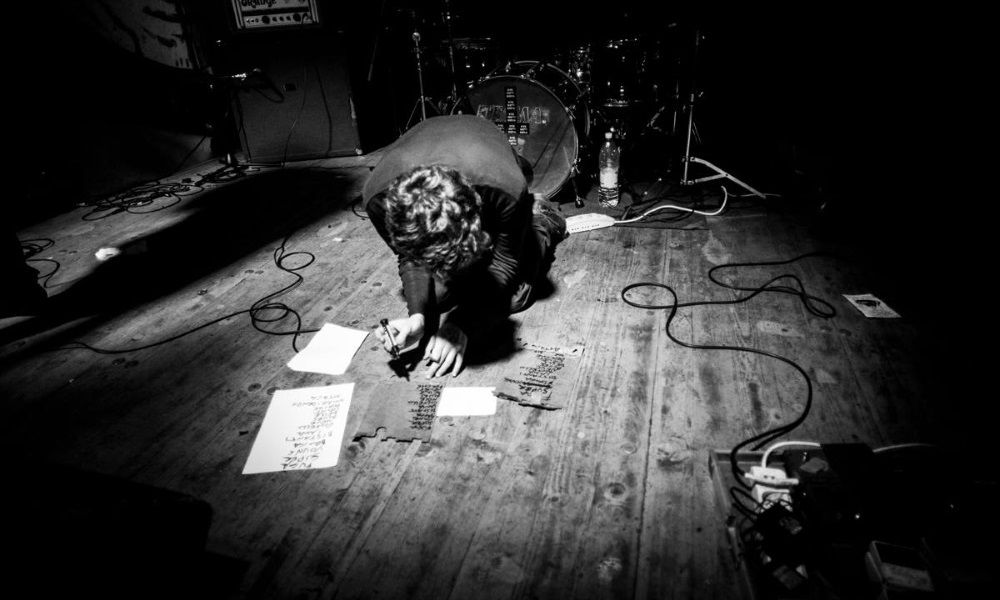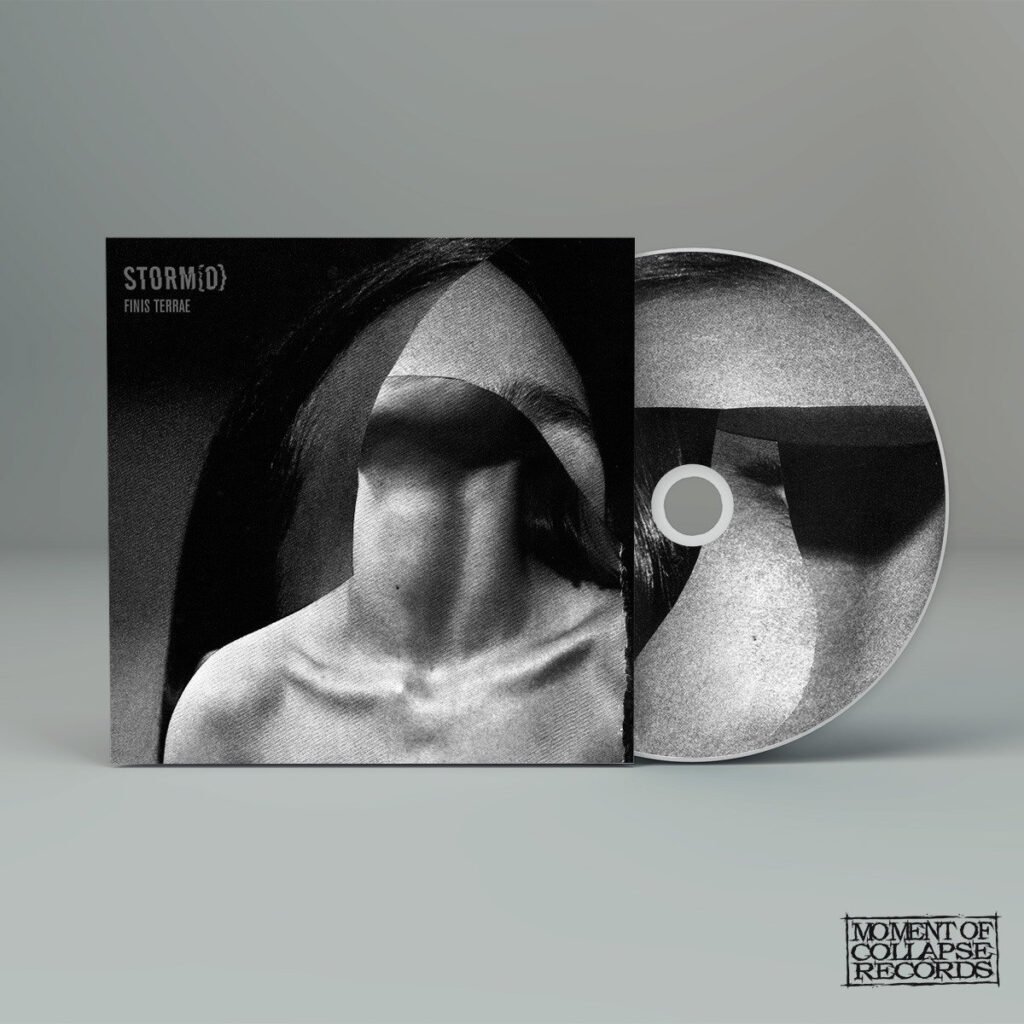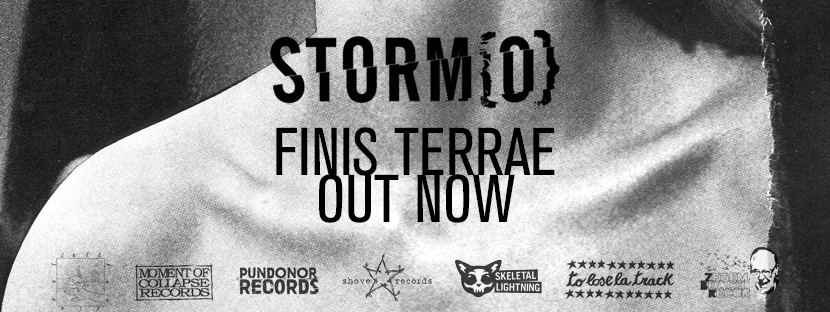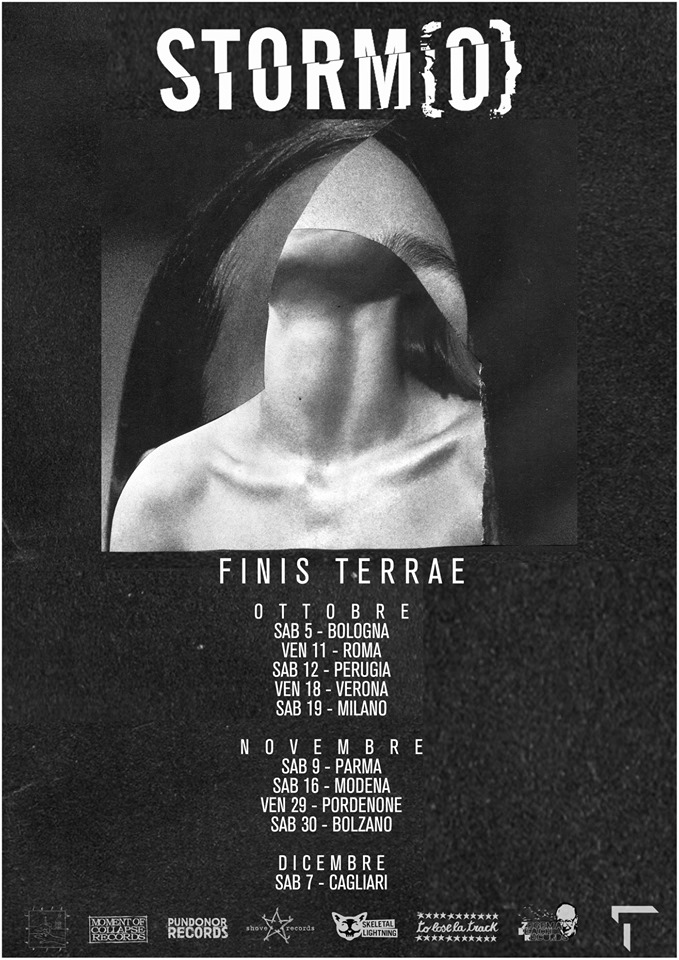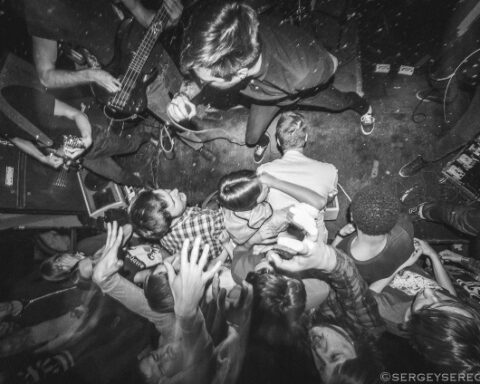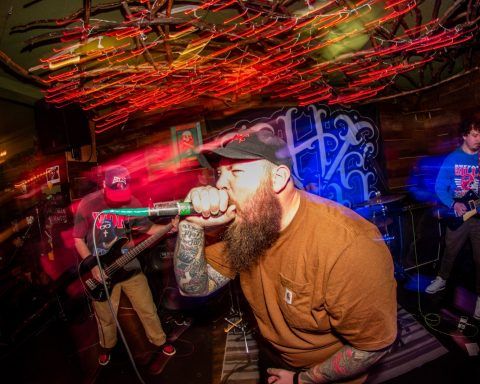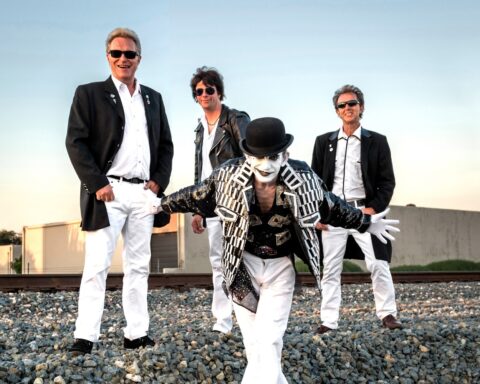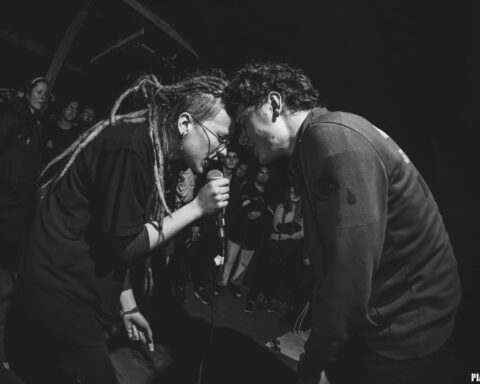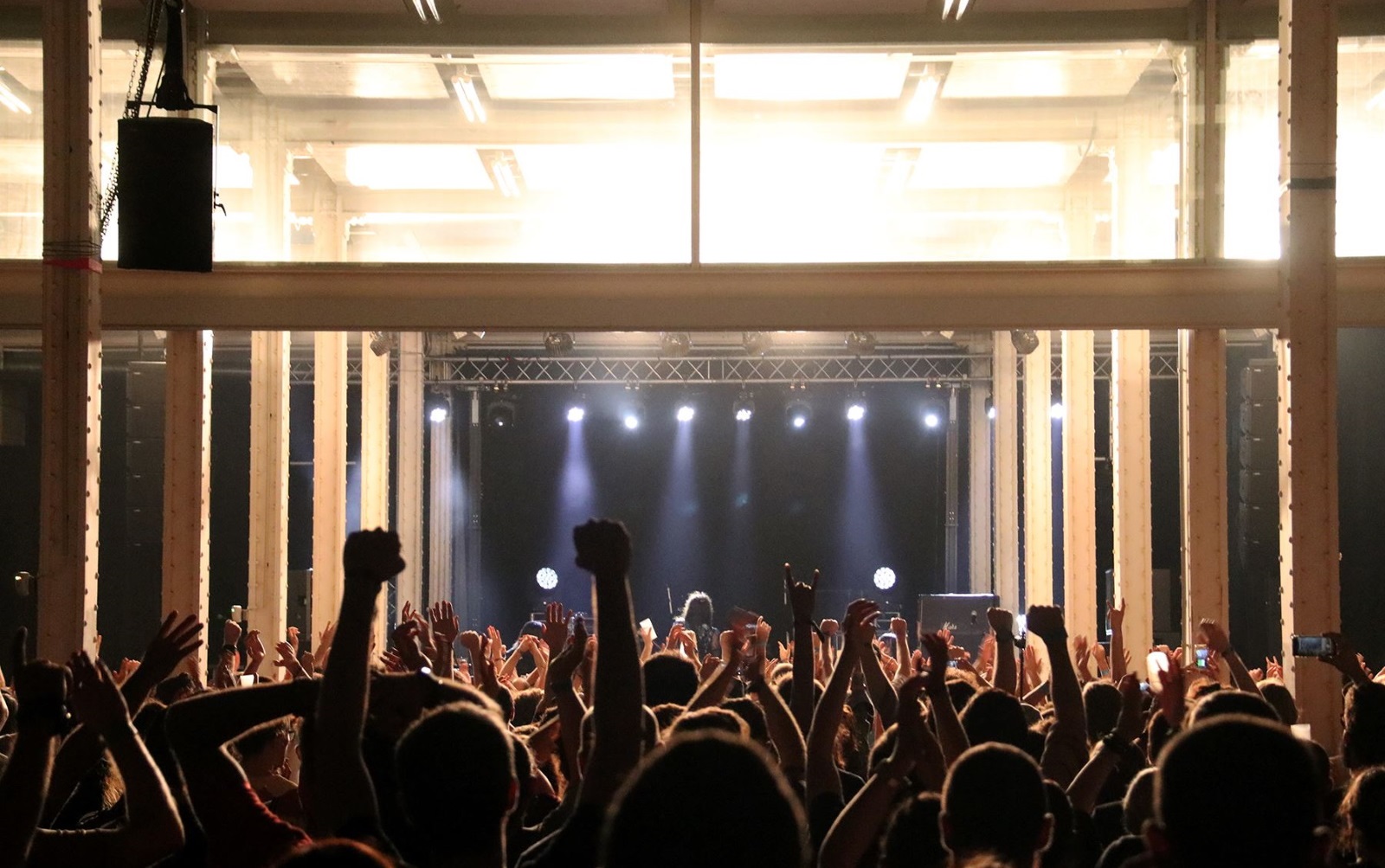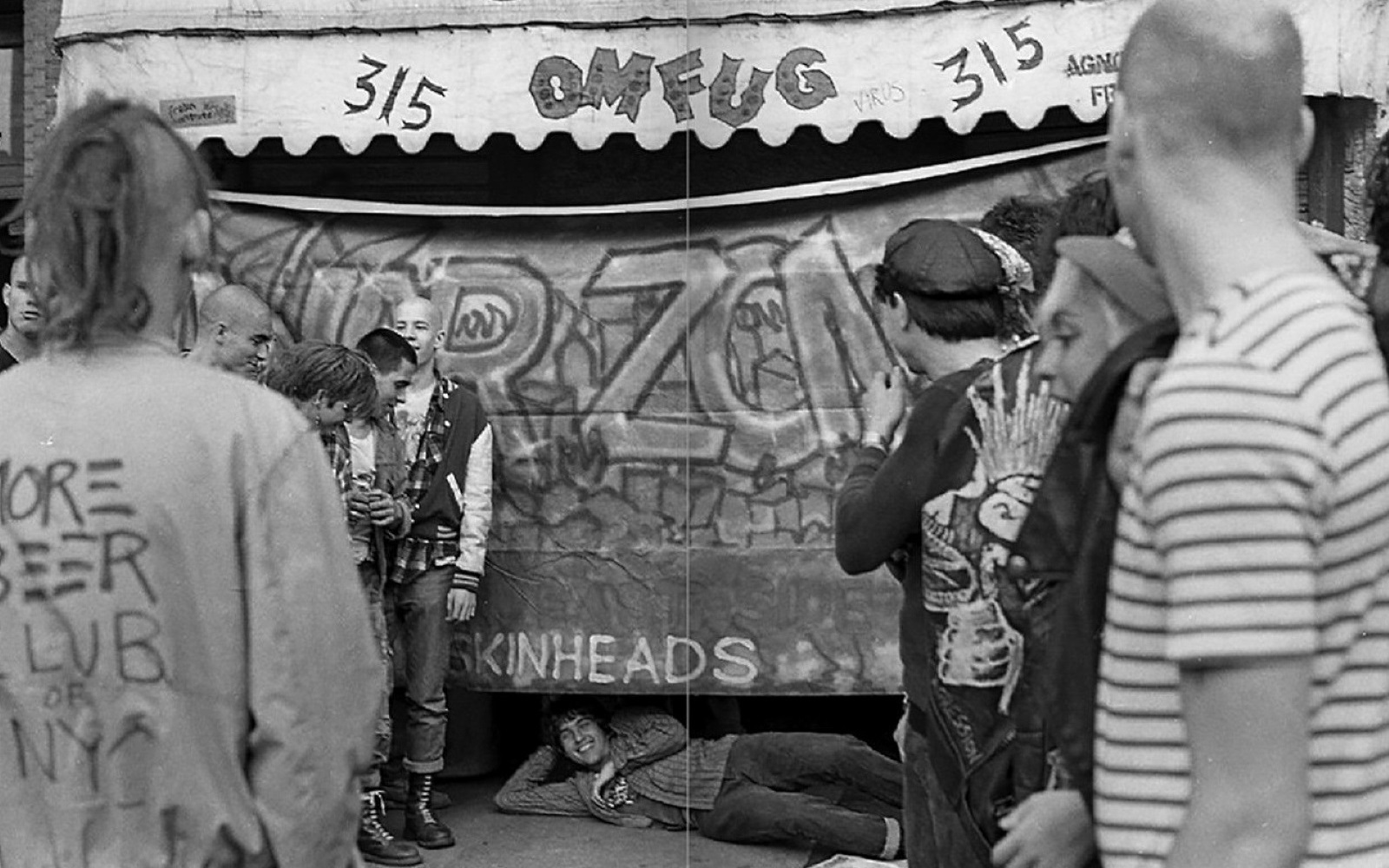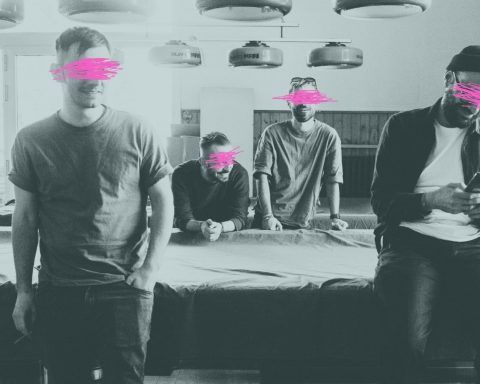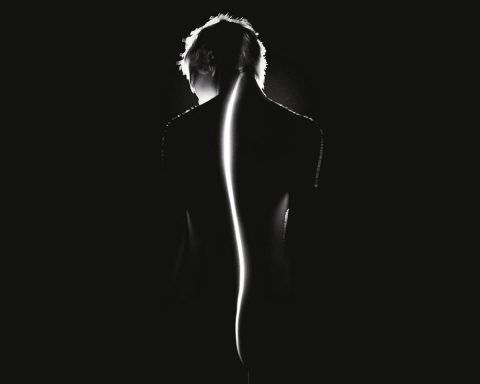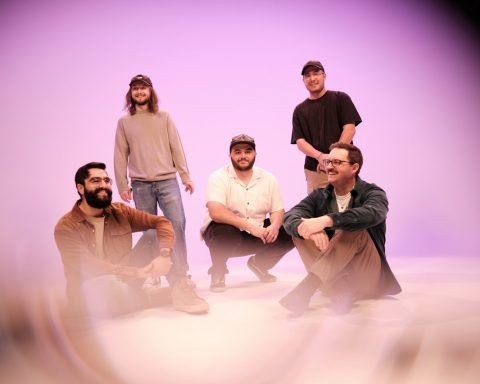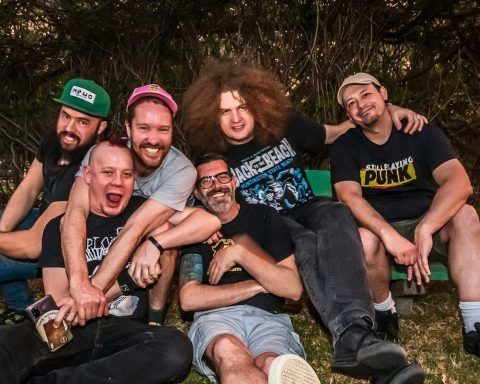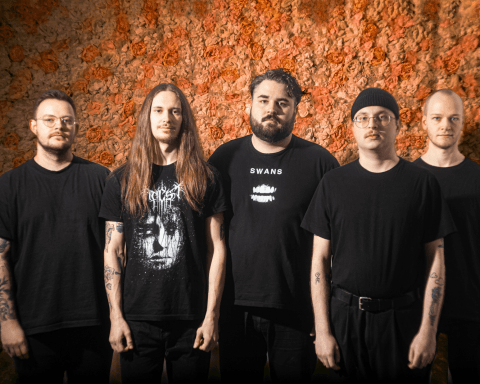Borders can be mental, existing only in our heads, and yet feel as powerful as though they were made of barbed wire and guarded with guns. And then there are the borders that are very much physical, which can have quite visceral emotional ramifications. The furious, Italian, hardcore act STORM{O} is back in 2019 with the new album Finis Terrae out on October 4th via Moment of Collapse Records, Skeletal Lightning, To Lose La Track, Shove records, Pundonor Records, Left Hand Label, and Zegema Beach Records.
As of 2019, it’s been almost one decade since STORM{O} was officially formed. Do you think Finis Terrae is like a retrospective, and it represents you as a band now?
Luca: Every record we made represents us at the exact moment we have written it, and therefore it includes everything that happened before. We couldn’t have written this last album without the ten years that separate it from the first Ep. The 3 LPs we’ve released until now as part of the same line of reasoning; the first one was speaking just about us; in the second, there were us facing the concept of time, and here we’re dealing with ourselves fragmented in time and space. Our music is an on-going process; a single record cannot represent us as a band, but it’s a solid base you set to be able to keep on building something.
How has the creative process changed towards your material over the last ten years?
Luca: It didn’t change that much. As I was saying our music reflects our life, things we experienced, and we cannot put into words, facts we face and we don’t understand or accept, find a place where to have room and live as we can watch all those things from the outside and give them a kind of a sense. The themes we debate changed as we grew older, and the focus slipped towards the outside world, and probably this is linked to a progressive mutation in our sound that left the early scream taste for a more noisy, harsh, and chaotic approach.
Is it still strong the DIY approach to your music?
Luca: Our music has always been firstly for ourselves, and we perfectly know that (fortunately) we will never be able to see it as a business. It’s nice to see that through the years more and more people enjoyed and appreciated what we are doing to a level we never expected, and lately we started to have some friends helping us managing the whole thing since we all live in different cities, we have jobs and other issues that made life more complicated. So, I’d say we don’t do everything anymore just by ourselves, but we’re like a big family where, beside the four of us that actually play, a lot of friends give their effort to make the whole thing works, and it’s nice to be helped by trustworthy people to improve ourselves.
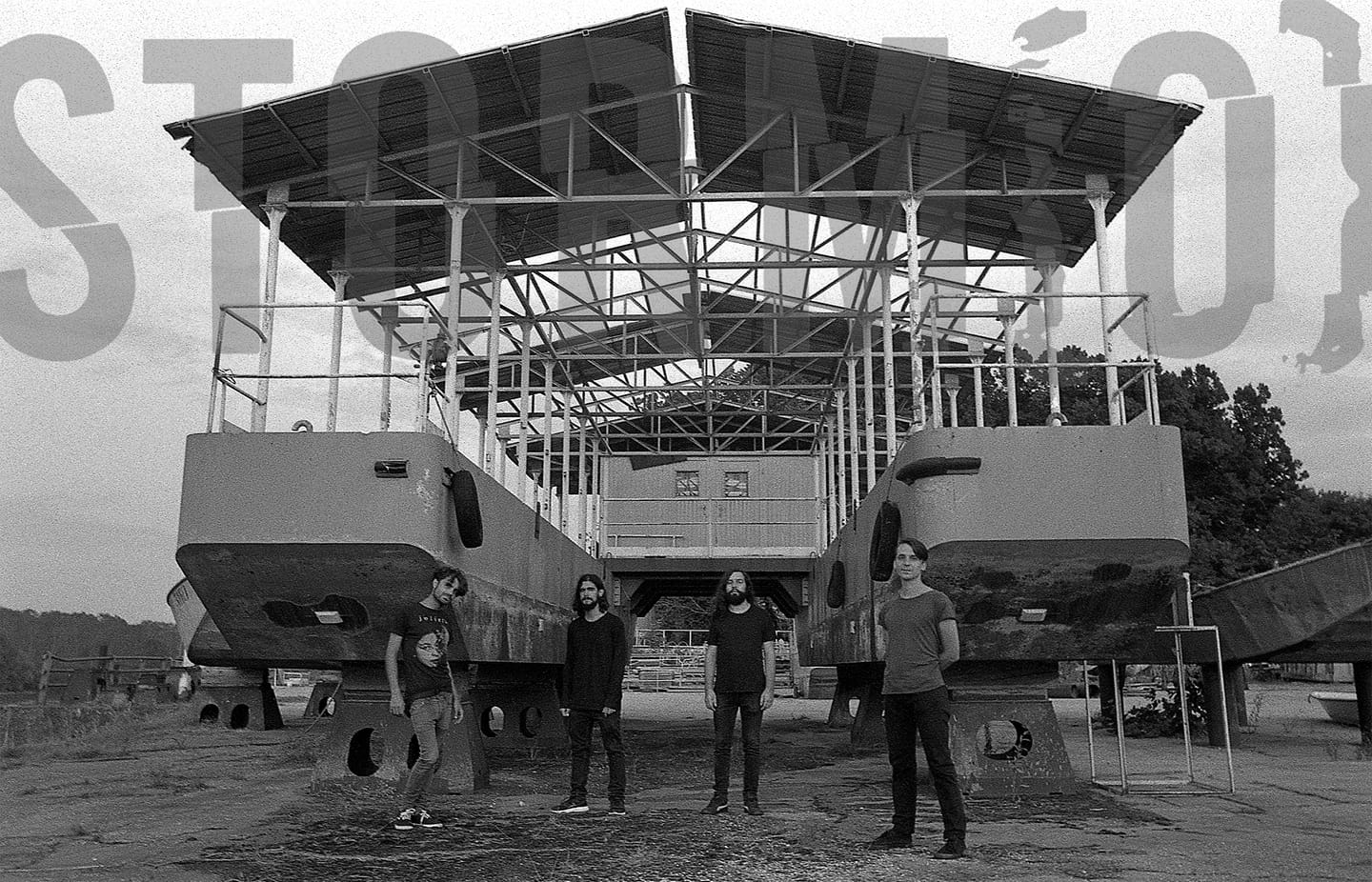
You are always searching for a new approach. More fast, more direct. What was the challenge for Stormo in this new record?
Luca: Every record gets its shape autonomously; maybe we have something in mind that we try to accomplish, but then the music comes out differently and we kind of like it unexpectedly; so we realize that it represents what we wanted to say way better than what we could do at the beginning. It’s a pretty complex form of writing, but after years this formula works for us.
For sure, as you said, we always try to be more direct as everybody can understand what we have to say. Having lyrics in Italian obliged us to delegate this task to the overall sound of the band rather than to the words themselves, and the outcome is a more symbolic message. Reaching a clear communication without a common language was one of the challenges of this album, and I think it worked out.
How do you respond when people ask, “How would you describe STORM{O}?”
Luca: Sorry, I cannot describe it. Come to a show, we will get to know each other, and you’ll tell me what you see.
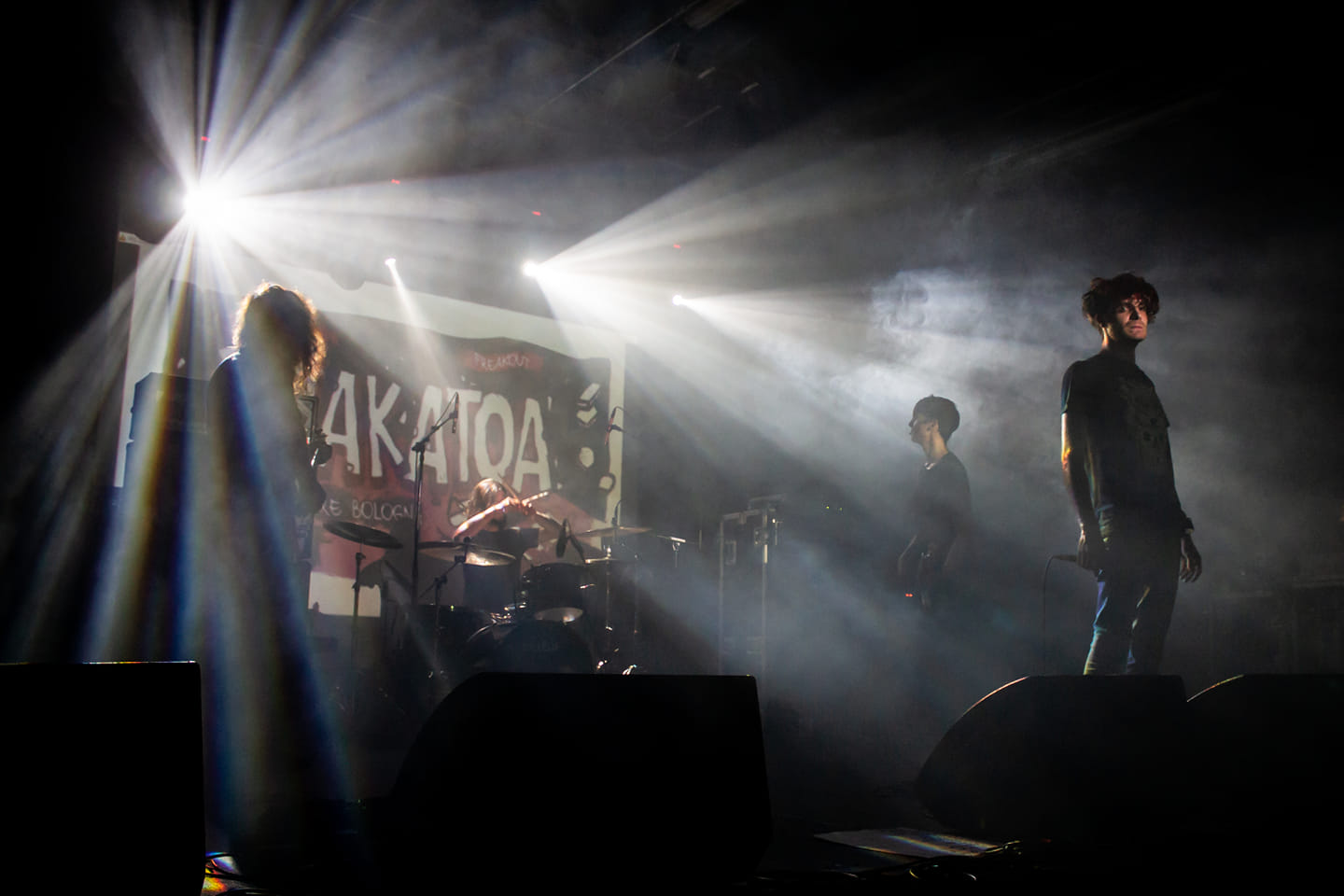
Talking about your experience in the studio: were you looking for a particular sound?
Federico: From the release of Ere to the release of this new album, we just played live, basically. We toured five times around Europe spending more time on stage than everywhere else; we always tried to play live a lot, and I would easily say that the live dimension is the best way we can express ourselves. So, back in the studio, we obviously tried to recreate the sound that is familiar to our ears, the live experience, and the music we (hope to) have to live also with all the imperfections, the fuzzy strings, and the tone-deaf notes. We are not that perfectionists, we never wanted to be; we like the dirt sound that you can obtain just trying to play as hard as you can.
You’re four different people with four different personalities and tastes in music. How do these differences combine to create the musical component of your songs?
Luca: We are four different people, and the differences between us enrich the creative process. Through the years, we found the right balance due to which every one of us can express himself and the individuality of each one get melted in something that is more than the sum of the music taste of the four of us. I, personally, couldn’t live without it.
You recorded the new album with the same producer of Soft Moon. Do you think working with Maurizio Baggio shaped the final result of the record?
Giacomo: Working with Maurizio Baggio helped us to recreate the live sound that we wanted to achieve, as Federico said. All the instruments were recorded live, as in a concert, all in one room and with no possibility to change the sound that much. We didn’t want to do a lot of post-production, re-recording, or after effects, we wanted a sound as naked and raw as we modeled it from the beginning.
I think this can also be perceived when listening to our new album.
To give the effect of two guitars, we recorded them with two amps, an EVH 5150 III and an old Laney Klipp, while the bass was recorded with a Gallien Krueger 400 RB.
The mixing process was pretty fast as well, Maurizio adjusted some value here and there and then he mastered everything on reel tape.
Federico: The best part of working with Maurizio (except for the role that he has, he is a really nice guy, an easy-going person, and an excellent producer) was the voice. We never paid that attention to it during the last recording session, Luca just enter in a room and start screaming for hours; we never heard it as well because our practice space is shitty and Luca uses a bass cab and a broken monitor as P.A. We loved the voice work on the lasts Soft Moon albums, and we tried different solution for the voice this time, with different kind of effects and images. We always tried to use the voice as a proper instrument, and I think that this time, we get really close to it.
You’ve been playing your instruments for several decades now. Have you noticed any changes in your relationship with your instruments over the years? Do you think differently about playing them, or about their sonic potential?
Federico: I try to not getting injured during every single show, failing miserably. Considering the sound itself, I always embraced Lemmy’s theory, “everything louder than everything else.”
Giacomo: My approach to guitar has undoubtedly changed over the years, I’m not looking anymore for something complicated, and I prefer a more direct and in your face approach. I try to write songs with a more straightforward and less sophisticated structure, following the classical song structure as a starting point. After that, our way of expressing ourselves remains unchanged and consolidated and certainly has nothing classic.
The cover art is really interesting. Can you tell me more about it?
Federico: Matteo Castro is the man behind our artwork; I really liked his artworks, and his works with the label he runs (Second Sleep ndr.) mainly focused on noise and experimental.
We had no clue about what to put on the cover and how to explain (or try to explain) the meaning of the album in a visual way. We only had this image in mind that somehow cross all the concepts of the album, about the weakness of borders physically, mentally, and personally speaking. Everything is volatile and unpredictable, even our bodies that keep on changing and melting together through the cities we cross and the other people we meet. And with this idea in mind, we spoke with Matteo, and after a few attempts, we found out a perfect way to describe this feeling; his work with collage represents perfectly this continuous helter-skelter.
The whole album is around the concept of “borders.” You’re from Italy. Do you think the political and social situation of your country influenced the writing process of the album?
Luca: Everything that happens around us influences the writing process of our music. This record has been written fast and in different parts of the world. Some segments of it were written in Vietnam, others in Cambodia, then the Balkans, Northern Europe, Portugal, Spain, and Italy. The problematic concept of “civilization”, the building process of the cities we live in, and we pass through that reflects the way in which we structure our identity, the chances we have to move as the right physically we have to hope, dream and imagine a future are all concepts you can find within the record but I wouldn’t link it just to what happens in the country we live in; I would rather expand the idea as if there were no differences between our body and the environment where the body lives. Cities as organs and the earth as a common body that ends in every one of us, that’s probably the general concept beside the whole album.
Recently the police cleared XM24, one of the major points of reference for the Italian underground music and a place where you played one of your first shows. Did this brutal fact has an impact on you personally and as a band?
Luca: We kind of grew up in XM24; we started managing and booking gigs there, and, as you said, at Anti-MTV Day Fest, we played there the first concert with the line-up that later in the year would have started recording “Sospesi Nel Vuoto (…)”. That place shaped us, and a part of what we are right now inevitably comes from there. I’m the only one still living in Bologna, the eviction of that place was a sad moment for the city, but it confirmed that a robust underground network still exists.
Do you have a memory of that show that you want to share?
Luca: It was unbelievable to be playing there. I was impatiently waiting to see La Crisi live and extremely nervous about being playing in such a big festival with bands I loved, but at the same time, it felt like home. I think that double feeling contains the importance of having places like that one; people need a safe space where to freely make experiences and grow up together.
Do you think underground music should give a strong message in the face of the rise of the nazis propaganda that Europe is suffering in the last couple of years?
Luca: Intolerance should have no place anywhere, not only in a certain kind of environment. The underground music scene is a nice place where to grow up because a lot of shit that goes on and infects the mainstream world doesn’t touch you, and you learn how to protect yourself from it. Our music and our actions should include more and more people in the safe area we had the privilege to experience, and yes, the message should be that another option exists; we all know that the world is full of assholes, but maybe not everybody knows that there’s even something else.
Talking about Europe. You’re going to play several shows in Italy and Europe. Are there any particular aspects of this tour that you are looking forward to this time?
Luca: A tour is the best moment of your life; however, it goes, whatever happens, in an instant, it gives sense to everything you’ve done for years and years. I’m happy we have the chance to be on the road again.



